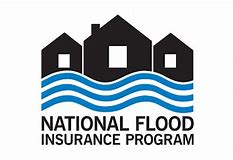New bills would limit WYO fees
 With its temporary reauthorization due to expire next month, new bipartisan legislation filed in both the U.S. House and Senate would extend FEMA’s National Flood Insurance Program (NFIP) for another five years, under a series of reforms addressing affordability and program management. The legislation in part takes aim at FEMA’s new Risk Rating 2.0, a rate modernization effort that took effect on October 1 and that some in Congress tried, but failed to halt. It applies modern catastrophe modeling and correct actuarially-sound rates to the in-debt 50 year-old NFIP.
With its temporary reauthorization due to expire next month, new bipartisan legislation filed in both the U.S. House and Senate would extend FEMA’s National Flood Insurance Program (NFIP) for another five years, under a series of reforms addressing affordability and program management. The legislation in part takes aim at FEMA’s new Risk Rating 2.0, a rate modernization effort that took effect on October 1 and that some in Congress tried, but failed to halt. It applies modern catastrophe modeling and correct actuarially-sound rates to the in-debt 50 year-old NFIP.
Both the House version (HR 5802) and the Senate version (S 3128) of the National Flood Insurance Program Reauthorization and Reform Act of 2021, would:
- Cap premium increases at 9%
- Create a voucher program to help low- and middle-income families pay for NFIP policies
- Cap compensation paid to private insurance companies in the Write Your Own (WYO) policies program, backed by the NFIP, at the rate FEMA pays to service its own policies
- Allow states to provide low-interest loans to residents, businesses, and communities for flood mitigation and resiliency projects.
- Require disclosure of flood risk & damage to potential property buyers
Rep. Val Demings (D-FL) is one of 17 co-sponsors of the House bill, which has also been signed onto by Rep. Charlie Crist (D-FL). Florida Senator Marco Rubio is one of 7 co-sponsors of the Senate bill, which was introduced by Senator Bob Menendez (D-NJ). You can read more in his press release.
The NFIP has collected $60 billion in premiums since the 1970s but has paid out $96 billion in claims, according to FEMA. The last decade, with its increase in catastrophe severity, has been especially costly. FEMA’s Risk Rating 2.0 Florida Profile shows that under the program, 96% of current policyholders’ premiums will either decrease or increase by $20 or less per month. Roughly two-thirds of policyholders with older pre-FIRM homes (pre-1970’s) will see a premium decrease.

Business Insurance by Nick Youngson CC BY-SA 3.0 Alpha Stock Images
Meanwhile, there’s a renewed effort by some in Congress to pursue pandemic insurance coverage for businesses impacted in future pandemics. Rep. Carolyn Maloney (D-NY) recently reintroduced the Pandemic Risk Insurance Act of 2021 (PRIA). It goes beyond last year’s version of the bill by requiring insurance companies to participate in the Pandemic Risk Reinsurance Program and offering pandemic coverage in all business interruption (BI) policies. You can read more in her press release.
Reinsurance News recently wrote that “while losses have certainly come down from the peaks of 2020 and there’s work underway to mitigate potential issues as seen with the BI class, there’s still room for further deterioration and L&H segment losses.” It and sister publication Artemis recently published the H2 2021 Reinsurance Market Survey, The survey, it reports, shows that almost 48% of respondents say they feel slightly concerned about the industry’s ability to manage a similar pandemic in the future.
LMA Newsletter of 11-15-21

